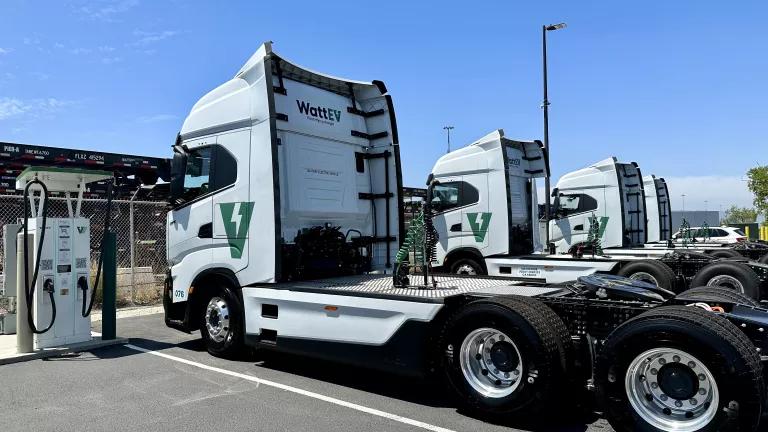Energy Officials Downgrade Estimate of Recoverable Shale Oil in Monterey Formation by 96%
Yesterday, the Los Angeles Times reported that the federal Energy Information Administration (EIA) has reduced its estimate of recoverable Monterey Shale oil by 95.5%, casting serious doubt upon previous estimates of the shale deposits as a “black gold mine.” In a report expected to be released early next month, the EIA brings its estimate of recoverable oil from 13.7 billion barrels of oil down to a mere 600 million barrels (that's 0.6 billion!) – enough to meet U.S. consumption for about 32 days.
This wildly different estimate confirms how little even the experts know about the amount of oil that companies might be able to recover from the Monterey Formation. And more importantly, this news does not change the fact that communities in California are facing fracking and acidizing right now. Residents are already experiencing adverse health impacts from ongoing oil development in the state: for example, the community around the Allenco facility in Los Angeles suffered health effects before the operator voluntarily shut down under pressure from federal regulators. For these reasons, we are urging California lawmakers to pass Senate Bill 1132 to impose an immediate moratorium on fracking and acidizing in California until the state studies the risks and determines whether these processes can – or even should – move forward in a safe manner.
We will review the EIA’s full report when it comes out next month and see whether, as the LA Times article indicates, new production and geological information actually does render this revised estimate more accurate than the previous one. If the new number is correct and all of the commotion has been about roughly one month's worth of oil, it makes it all the more clear that the state should not put Californians' health and the environment at risk. After all, 0.6 billion barrels won’t even bring the purported jobs or increased revenues to the state that the oil industry has previously promised. Why should Californians risk man-made quakes or further strain water supplies in a drought? Why risk spills, accidents, contaminated drinking water, or more polluted air?
Polling shows Californians weren’t willing to take those risks when they thought the Monterey Formation held 15 billion barrels of recoverable oil. If this new number is accurate, we have to think they would feel even more strongly now.
Forget industry's push to frack the “black gold mine" -- clean energy is the real treasure trove for Californians. Investments in clean energy create on average about six times as many jobs as investments in the fossil fuels sector.¹ While the oil and gas industry laid off 10,000 workers during the recession, renewable energy companies added a half million jobs between 2003 and 2010. In fact, the renewable energy industry has grown at twice the rate of the overall economy, and green jobs employ 2.7 million Americans, more than the entire fossil fuels industry combined.
Oil is not California’s future. Oil demand has been going down in California because of our landmark clean energy policies. And we can’t stop there. We must accelerate our transition away from dirty fuels that risk our public health and our environment, and move toward clean energy now.
------------------
¹ Based on U.S. Bureau of Labor Statistics data showing the fossil fuel sector with a very low job-intensity factor (i.e., jobs per million dollars invested) as compared with energy efficiency, which creates jobs by diverting capital out of the fossil fuel sector and into the far more job-intensive general economy. See, e.g., Employment Projections Program, U.S. Dep’t of Labor, U.S. Bureau of Labor Statistics, 2012-2022, available at http://www.bls.gov/emp/ep_table_207.htm; see also David Roland-Holst, Center For Energy, Resources, and Economic Sustainability (CERES), University of California at Berkeley, “Energy Efficiency, Innovation, and Job Creation in California,” Oct. 2008, available here.




